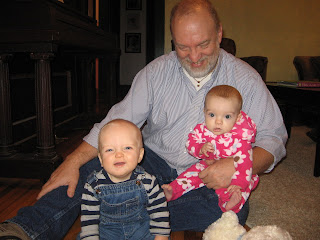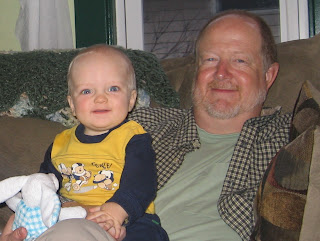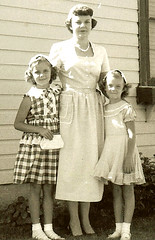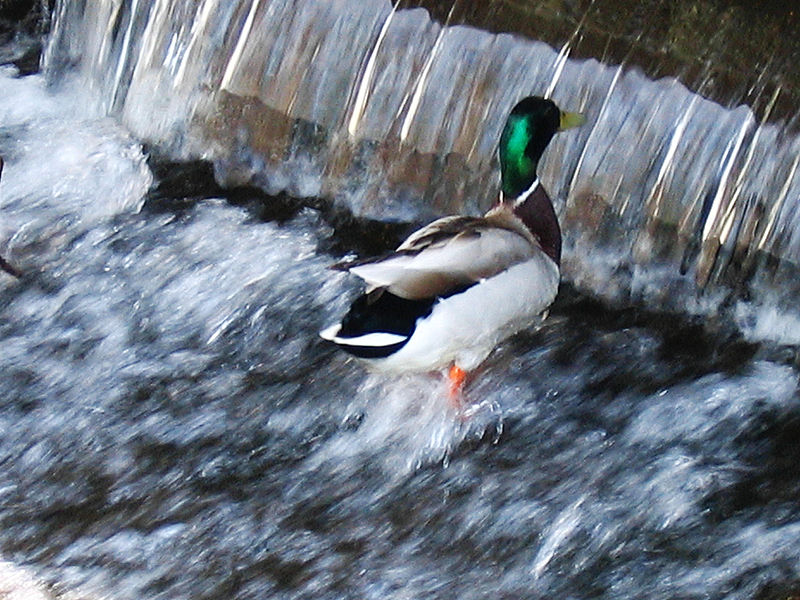As a newborn, our son slept a LOT. When he
was awake, he was content to study the ceiling fan and easily overstimulated. By 7 months, however, an active and alert baby had revealed himself. He can stay awake longer, eats solid food, and is mobile (somewhat).
What's a Momma to do with these longer playtimes?
Baby Talk
has some great suggestions for play that helps stimulate language development and doesn't require fancy toys:
*
Beginning Hide-And-Seek: Put a towel over baby's head and say "Where's Baby?" Then pull it off with "There he is!" Then put the towel over your head and say "Where'd Momma go?" See if he'll pull the towel off you. This is a great version of peek-a-boo. As Baby gains more physical control, he'll enjoy more action in the game.
*Copy Cat: Games like "Patty Cake" have been around a long time because they delight babies this age. Start by singing the "Patty Cake" song and doing the motions yourself. Then help Baby imitate them. Try again doing the motions yourself and see if he can follow along.
*Name Calling: While Junior is playing by himself, call his name and smile when he looks at you. Then move behind him and try again. This helps reinforce what his name is. Also, refer to yourself or Daddy or siblings with their names when possible rather than "I", "he" or "they." Baby can't understand pronouns yet, but he can learn names.
*Block Banging: Baby is just learning how to hold one toy in each hand. Try banging two blocks together saying "boom boom" to show him how. Then give him two blocks to pick up. See if he can get one in each hand to imitate. My son still drops one toy to pick up another, but he enjoys banging our wood floor (even with just a hand) to hear the noise it makes.
*
Foot Up: Encourage Baby to help while you're dressing him by saying "foot up" before putting on socks. If he doesn't respond on his own, do it for him. Before long, he'll know how to help.
*I'm Gonna Get Your __________: This is a great way to get Baby to learn his body parts. Pick two or three and say "I'm gonna get your toes!" before tickling them. If you stick with just a few parts at a time, you're reinforcing those more often so he's more likely to understand.
It's amazing how quickly he's growing and developing. Even now, his babbling begins to sound like his native tongue. A Chinese baby's babbles will sound Chinese and an American baby's babbles will sound like English. Before long, he'll be speaking in real words! What fun to help him get there!
RESOURCES
Baby Talk
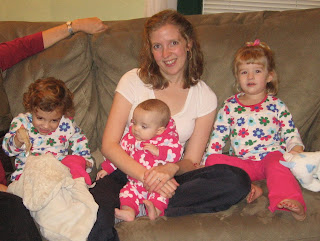 And here's grandpa doing some baby duty:
And here's grandpa doing some baby duty: